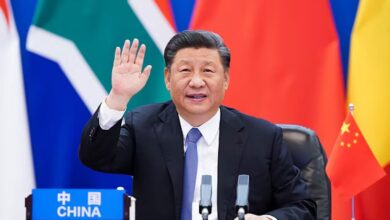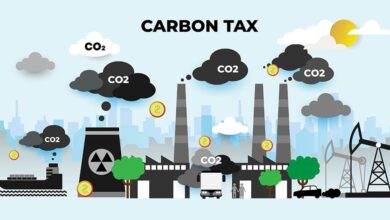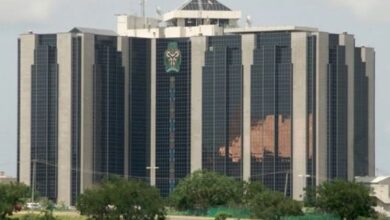Why there are no decent political platforms ahead of 2023

Reflecting on the dysfunctional state of the country, you would be excused for thinking that the absence of ideological leanings in Nigerian party politics would be a net positive outcome. If for no other reason than that the extremes of partisanship captured by the notions of “left” and “right” in advanced democracies nearly always make for discomfiting gridlock. In an era in which the challenges faced by mankind (a rapidly warming planet, how to ensure that the returns to labour and capital from economic activities are fair enough not to threaten the integrity of societies) do not easily lend themselves to resolution by the markets or by government intervention alone, these viscerally opposed views of how to govern have only washed away the bases for cooperation without which progress (political, social, economic) will be that much slower.
Yet, the heterodoxy of the Buhari administration was never properly advertised as a schematic for avoiding or going past the divisions posed by the “left” and “right” take on politics; even when it could have filched their main arguments in the new synthesis that its boosters claim it represents. Still, whether as gut response or as a thinking man’s solution to the task of governance, this heterodoxy has failed. Pick any economic dataset ― output growth, unemployment, inflation, the debt burden, etc. ― it does not really matter. Only a very committed tribe continue to insist that this is a government worth having. Given how heavy the Buhari administration has been on government’s presence in the economy, is this evidence enough that the Nigerian economy needs more entrepreneurial than bureaucratic activity?
Those minded to respond with “Ayes” to this question could point to the nation’s thriving financial technology sector as part of the requisite evidence. Further, a thought experiment could be devised along these lines. How big would the fintech sector be if the Nigeria Police Force did not believe that every young man below 30 years, toting a laptop, is a criminal? And with this hindrance out of the way, by how much would it matter if government, at all levels, were to commit to pushing down the cost of doing business ― better electricity supply, faster internet connections, cheaper and liveable housing across all our urban centres, etc. ― in that sector?
A big part of the problem with the way the Nigerian state is currently arranged means that reforms of this magnitude will still leave the economy short. The Igbo’s entrepreneurial zeal is the stuff of urban myth across the country, if not the source of resentment in parts thereof. But anecdotal evidence suggests that not all of it is a lie. The same way it suggests that the “Aboki’s” facility with corner shops is not to be trifled with in the design of policy. All told, to fix the entropy of the last ten years, our policymakers have got to unleash the entrepreneurial potential of our 200 million people. If just about 8 per cent of these earn US$5,000 annually, then, the policy equation might find enough latent demand to jump-start any frontier economy.
Also Read: Slower-paced inflation ― any lessons?
Still, this does not address questions around why most businesses, in the country, remain trapped in the informal sector where they do not pay taxes and are invisible to officialdom’s prying eyes. Arguably, decrepit infrastructure ― including access to credit and a trust deficit ― is one explanation. But the burden posed by a cackhanded bureaucracy on businesses in the formal sector ― especially the failures in the regulatory space that we witness daily ― is a far bigger disincentive for domestic businesses to come out of the “informal” closet.
In the light of all this, one would have expected a more agitated buildup to elections next year. It would have been quite easy for an opposition party to describe itself as different from, and thus better qualified to rule than the incumbent one. This argument will rest in part on the failure of the heterodoxies beloved of the Buhari administration. Largely, though, it would simply acknowledge the severe limits to a government-led economic growth model.
So, why are the ideas of a freer market, governments (at all levels) limited to prudent fiscal policies, and a central bank focussed on its enabling statutes not at the top of an opposition party’s bid to replace the current All People’s Congress government at the federal level next year? The electorate, nay, the larger number of our people are native socialists. One could explain this in terms of the natural response of a people (long traumatised by unbridled and ceaseless expropriation of the state by a select few) to all wealth. But this is only part of the explanation. Nigerians may have come to be persuaded that all wealth is theft. But our politicians do not also want a thriving business class that may offer a counter-conversation to their current narrative of our congenital incompetence.
Uddin Ifeanyi, journalist manqué and retired civil servant, can be reached @IfeanyiUddin.







